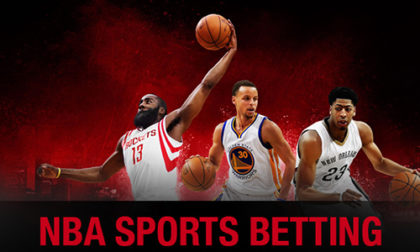AGA Slags NBA Over Sports-Betting ‘Integrity Fee’ Proposal
Hot on the heels of the testimony offered this week by National Basketball Association attorney Dan Spillane supporting a desired, one-percent “integrity fee” to be paid to the United States’ professional sports leagues to not continue to block legalized sports betting is the expected pushback from virtually the entire sports-betting and gambling world. Marching in the parade: The American Gaming Association, whose president, Geoff Freeman, quickly issued a statement calling out the NBA on its chutzpah.
 Freeman and the AGA issued the response following Spillane’s appearance before the New York State Senate Standing Committee on Racing, Gaming and Wagering. New York is likely to have sports-betting legislation ready to move if neighboring New Jersey prevails in its Supreme Court challenge against PASPA, the US’s quarter-century-old federal law that bans all forms of sports betting in 46 US states, including New York and New Jersey.
Freeman and the AGA issued the response following Spillane’s appearance before the New York State Senate Standing Committee on Racing, Gaming and Wagering. New York is likely to have sports-betting legislation ready to move if neighboring New Jersey prevails in its Supreme Court challenge against PASPA, the US’s quarter-century-old federal law that bans all forms of sports betting in 46 US states, including New York and New Jersey.
Though the NBA has been most amenable to the likely approval of legalized US sports betting at some point, the emergence of the demand by the major leagues of the 1% integrity fee has been comical. There’s no way to disguise that it’s just an attempted cash grab, and is unconnected to any actual integrity concerns. Yet it was put on the table by the NBA’s Spillane in New York, just as it magically found its way into a House sports-betting bill recently dropped in Indiana.
It’s always best to stomp out such nonsense before it gains a serious toehold, and Freeman and the AGA have taken their initial shot.
Said Freeman, “We are pleased that the National Basketball Association (NBA) today joined with the gaming industry in support of vigorously regulated sports wagering. We can all agree that the 25-year ban on sports wagering has been a failure in every regard. Now, let’s get real about eliminating the illegal market, protecting consumers and determining the role of government – a role that most certainly does not include transferring money from bettors to multi-billion dollar sports leagues.”
The AGA’s statement also included a bullet-point list on what it describes as the “NBA Proposal to Skim Money from American Taxpayers”:
- A legal Nevada sports book realizes 3.5-5 percent in revenue;
- A 1 percent “integrity fee” on all money wagered legally by Americans, as proposed by the NBA, amounts to 20-29 percent of total revenue;
- Money that leagues skim off the top decreases the total amount of money taxable by state/other governments. These dollars fund vital community services;
- Money that goes directly to the leagues distorts the odds that legal bookmakers are able to provide and encourages Americans to continue to operate criminally in the illegal market;
- Americans are currently wagering approximately $150 billion illegally on sports annually;
- All leagues have retained outside resources to track betting activity in the current marketplace (legal and illegal);
- A legal market in the United States is expected to process approximately $150 billion in wagers, or the same amount that the leagues are currently confronting.
That and much more. Spillane, in trying to sell the NBA’s con, indicated that one of the justifications for the so-called integrity fee was a matter of existence: If the sports didn’t exist, then there would be nothing on which bettors could bet. This of course ignores the fact that gambling is a natural human activity, and if humans couldn’t wager on sports, then they’d just wager on some other pastime or game.
The whole existence thing, if carried another level, would suggest that instead, it should be the pro sports leagues paying something to every single one of their fans, because if the fans didn’t buy the tickets and watch the games and suck up the overpriced merchandise, the leagues simply wouldn’t exist.
Of course, no other major sports associations anywhere on the globe are paid such an integrity fee. In the US, though, the sports leagues have a long history of carrying extortionate demands to almost incomprehensible, toxic-capitalism extremes. The integrity fee is one such example. As the AGA notes, it would actually slice off more than 20% of any operator’s GGP, thus forcing worse odds and offerings from licensed operators and driving action to unregulated sites. That would be the exact opposite of the “integrity” the leagues claim to want.
So bully on Freeman and the AGA for speaking up on this issue, even if the AGA remains embarrassingly mum on online-gambling matters.




















COMMENTS